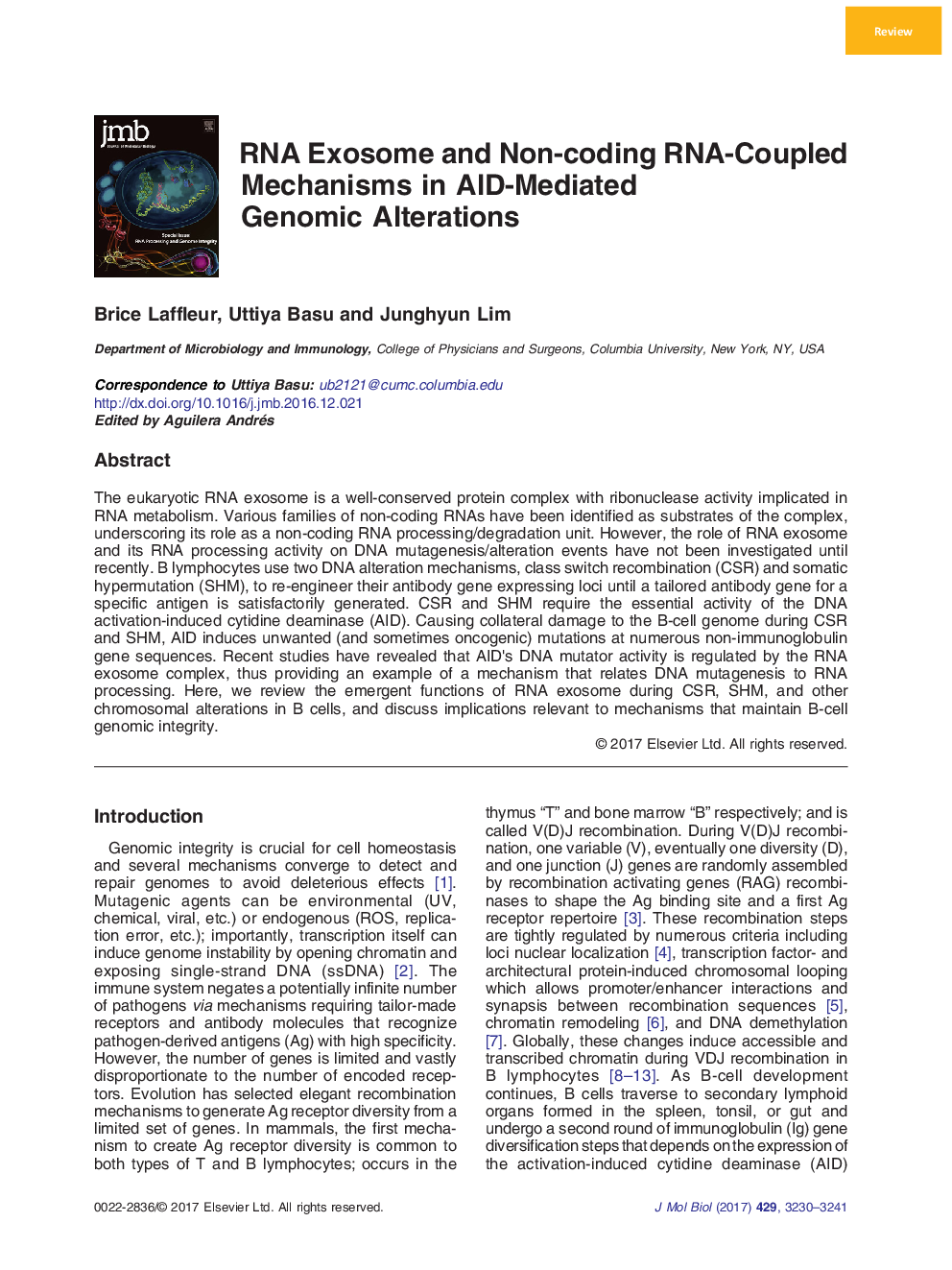| کد مقاله | کد نشریه | سال انتشار | مقاله انگلیسی | نسخه تمام متن |
|---|---|---|---|---|
| 5533103 | 1550355 | 2017 | 12 صفحه PDF | دانلود رایگان |

The eukaryotic RNA exosome is a well-conserved protein complex with ribonuclease activity implicated in RNA metabolism. Various families of non-coding RNAs have been identified as substrates of the complex, underscoring its role as a non-coding RNA processing/degradation unit. However, the role of RNA exosome and its RNA processing activity on DNA mutagenesis/alteration events have not been investigated until recently. B lymphocytes use two DNA alteration mechanisms, class switch recombination (CSR) and somatic hypermutation (SHM), to re-engineer their antibody gene expressing loci until a tailored antibody gene for a specific antigen is satisfactorily generated. CSR and SHM require the essential activity of the DNA activation-induced cytidine deaminase (AID). Causing collateral damage to the B-cell genome during CSR and SHM, AID induces unwanted (and sometimes oncogenic) mutations at numerous non-immunoglobulin gene sequences. Recent studies have revealed that AID's DNA mutator activity is regulated by the RNA exosome complex, thus providing an example of a mechanism that relates DNA mutagenesis to RNA processing. Here, we review the emergent functions of RNA exosome during CSR, SHM, and other chromosomal alterations in B cells, and discuss implications relevant to mechanisms that maintain B-cell genomic integrity.
Graphical Abstract184
Journal: Journal of Molecular Biology - Volume 429, Issue 21, 27 October 2017, Pages 3230-3241